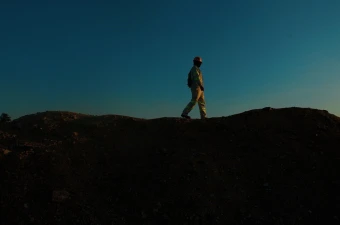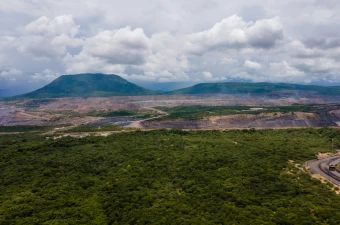The health and safety, especially of outsourced mine workers, is at stake
On International Labour Day, CNV Internationaal exposes a variety of problems being caused by the energy transition. According to research conducted with mining trade unions in Peru, Bolivia, and Colombia, “extreme working times, unsafe working conditions with very few health and safety measures in place, low wages, violence against trade unions, and outsourcing are just some of the problems miners at the metals mines in Peru and Bolivia, as well as coal miners in Colombia, have to deal with,” says Maurice Van Beers of CNV Internationaal.
“Health and safety issues for these miners must be dealt with. Only then can the energy transition take place in a socially responsible manner,” emphasises Van Beers.
At the beginning of this month, a Colombian mine worker was killed when his machine tipped over. “Like so many of the workers, he was outsourced. Chances are very small that his family will ever receive any financial compensation for the accident,” Van Beers relays.
CNV Internationaal and Profundo would like to present “Health and Safety Risks at Work: The Situation of Direct and Outsourced Mine Workers in Bolivia, Colombia, and Peru,” a joint report on violations of labour rights. The research was funded in part by the Dutch international RBC Agreement for the Metals Sector.
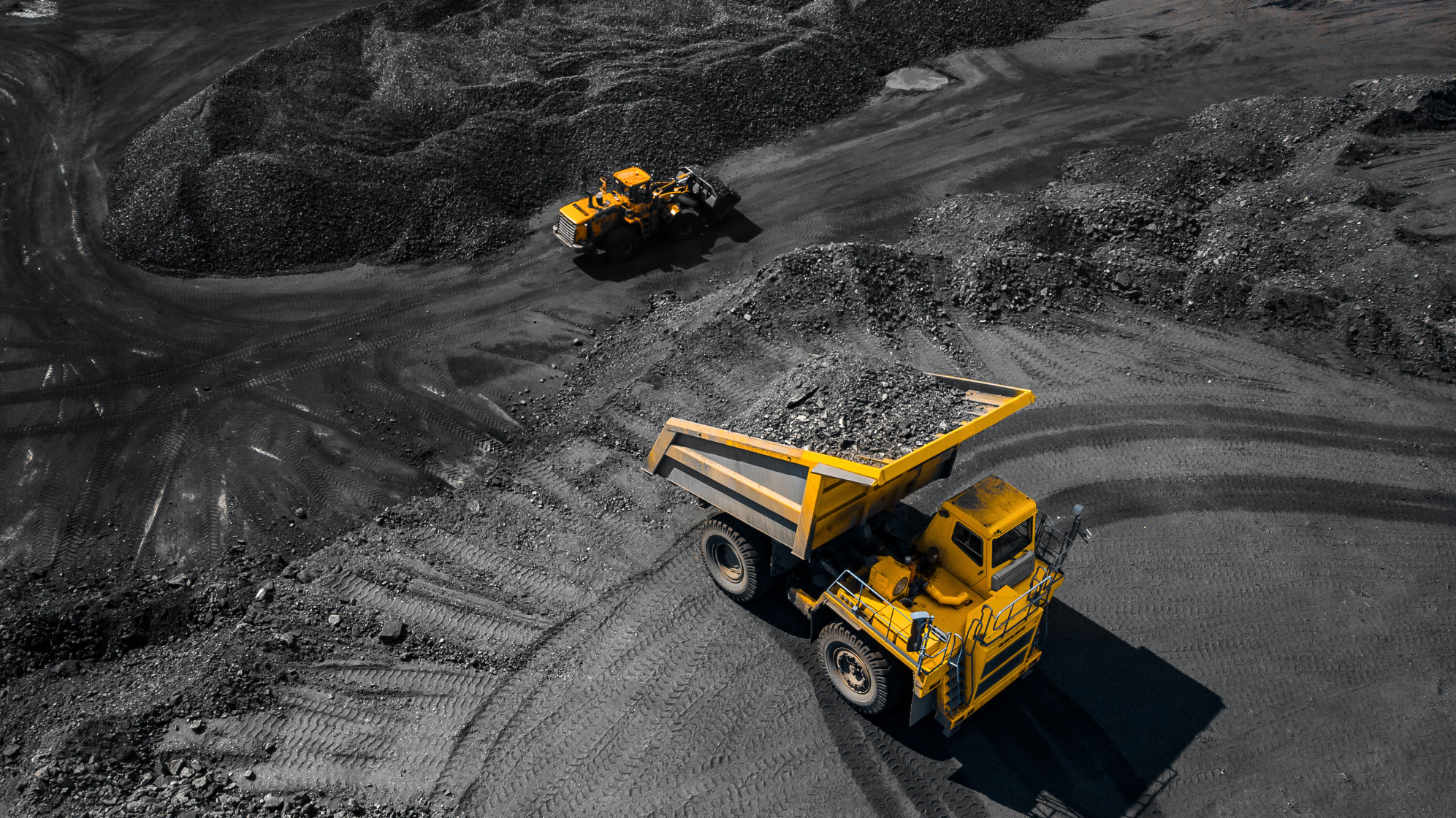
At the beginning of this month, a Colombian mine worker was killed when his machine tipped over. “Like so many of the workers, he was outsourced. Chances are very small that his family will ever receive any financial compensation for the accident,” Van Beers relays.
Natural resources
The energy transition in Europe is gaining momentum. An increasing number of countries are switching from coal to more environmentally friendly sources, like solar and wind. As a result, the demand for metals is on the rise, as these are needed for the use of wind turbines, electronics, and solar panels. Unfortunately, research indicates that miners, from both the coal and metal mines, are likely to end up victims of this process.
Sustainability issues
Workers’ rights are being violated on a large scale. Across the globe, we are seeing evidence that the energy transition is anything but socially sustainable. Little to no attention is being paid to the detrimental effects it’s having on the very men and women making it possible.
Problems in the mines
Miners are saddled with extreme work schedules, unsafe conditions, and almost no health and safety amenities. And then there’s also the low wages and anti-union violence. As more and more workers are being hired through employment agencies with temporary contracts, they are losing increasingly more ground when it comes to securing their rights.
Participatory monitoring system
In 2022, CNV Internationaal began doing research with a participatory digital monitoring system. It included some 367 workers in the mining sector, with 35 from Bolivia, 129 from Colombia, and 203 from Peru. Van Beers says, “Thanks to their participation, we’ve been able to create this report about health and safety in the workplace. It contains important first-hand information for stakeholders in the supply chains. We’ll also be able to use this report to develop instruments and a road map for improving circumstances for workers, now and in the future.”
Work-related illness from dust and toxins
The miners in the underground polymetal mines of Bolivia and Peru are continually exposed to silica dust particles and toxic gases, both of which are damaging to the lungs. In the open coal mines of Colombia, there is coal dust. Long-term exposure to these substances can cause the chronic illnesses of silicosis and pneumoconiosis, not to mention lung cancer, COPD, and kidney diseases.
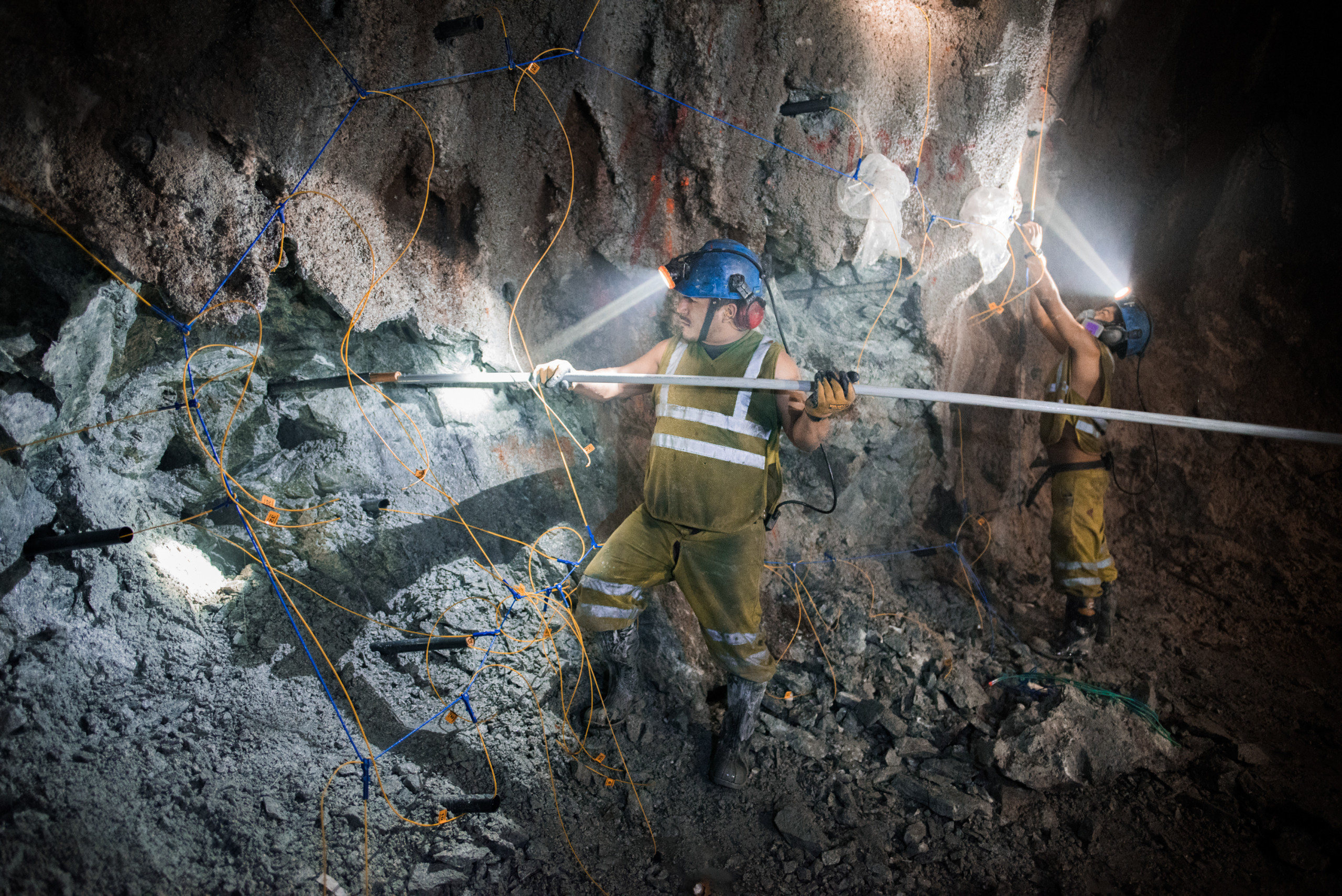
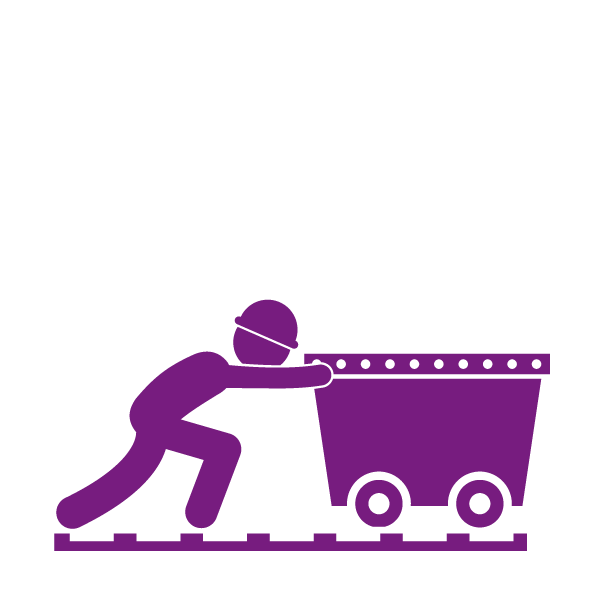
Research findings
The research has shed light on the types of risks which are affecting the miners the most
Main risks
Below are some key research outcomes :
Work-related illness from dust and toxins
The miners in the underground polymetal mines of Bolivia and Peru are continually exposed to silica dust particles and toxic gases, both of which are damaging to the lungs. In the open coal mines of Colombia, there is coal dust.
Long-term exposure to these substances can cause the chronic illnesses of silicosis and pneumoconiosis, not to mention lung cancer, COPD, and kidney diseases.
Poor ventilation
90% of the respondents reported that they felt they were exposed to high concentrations of dust and gases in their work environment. And in Peru, the miners reported poor ventilation in the mine shafts as one of their greatest work risks.
Exposure to floating dust particles
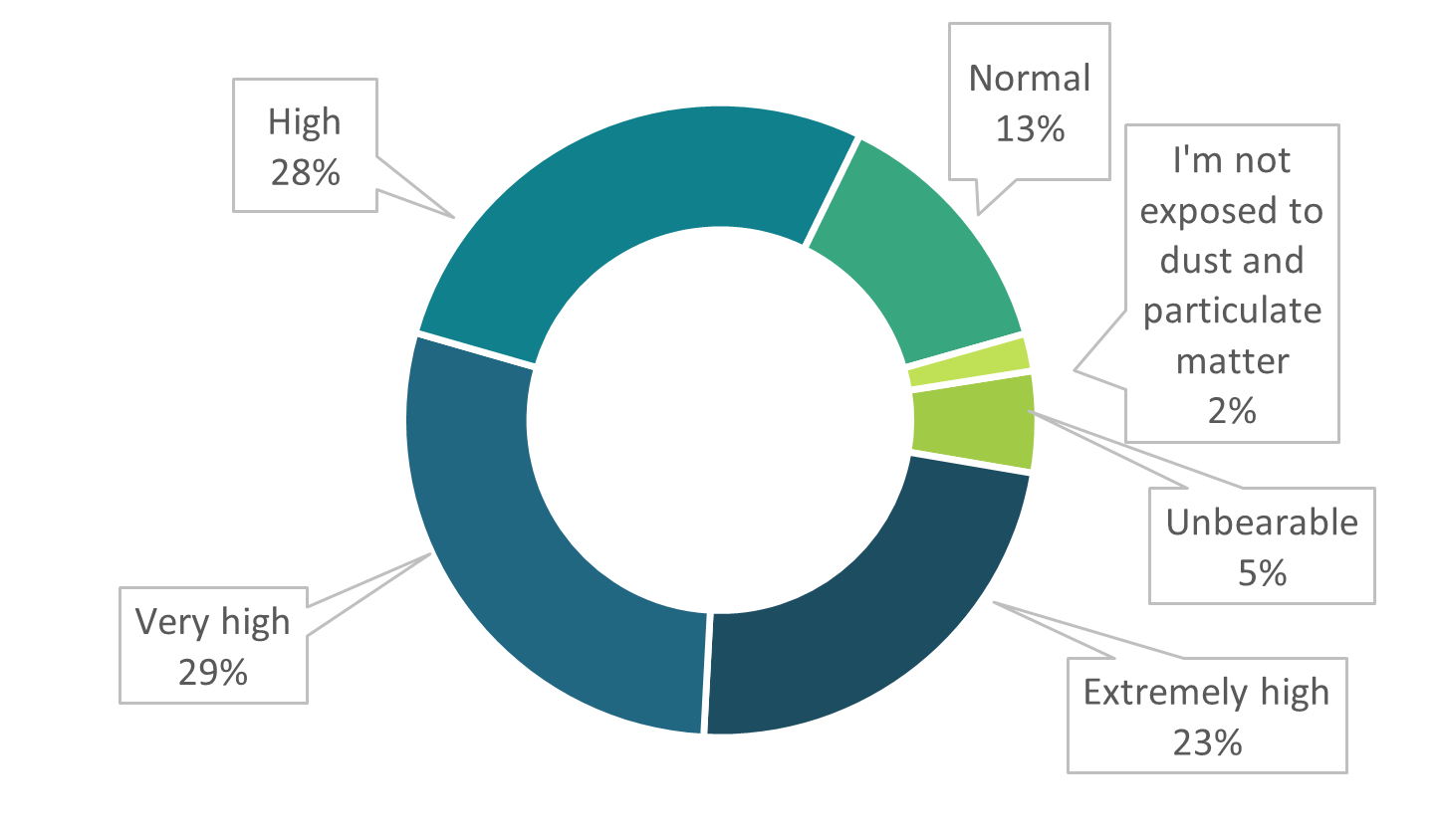
Extreme work schedules: The shift of death
Miners commonly reported having 12 hour shifts and 8-10 hours of commuting. In Colombia, the workday has been extended. There are currently 3 shifts, when there used to be 4. Moreover, miners now work 21 consecutive days instead of 15.
This extreme work tempo has caused an increase in the physical and psychological exhaustion of workers, which in turn, increases the risk of accidents in the workplace. Mine workers refer to this new roster as "El turno de la muerte" (“the shift of death.”)
Micro naps
The workers who were interviewed also told us that the risk of accidents would only increase if nothing were done about the current situation. Work exhaustion and lack of sleep are major issues. 40% of respondents said they got less than 6 hours of sleep a night. And 40% also said they took micro naps during work hours. This is especially concerning in Colombia, where 77% reported taking micro naps.
The workload experienced by direct and subcontracted workers
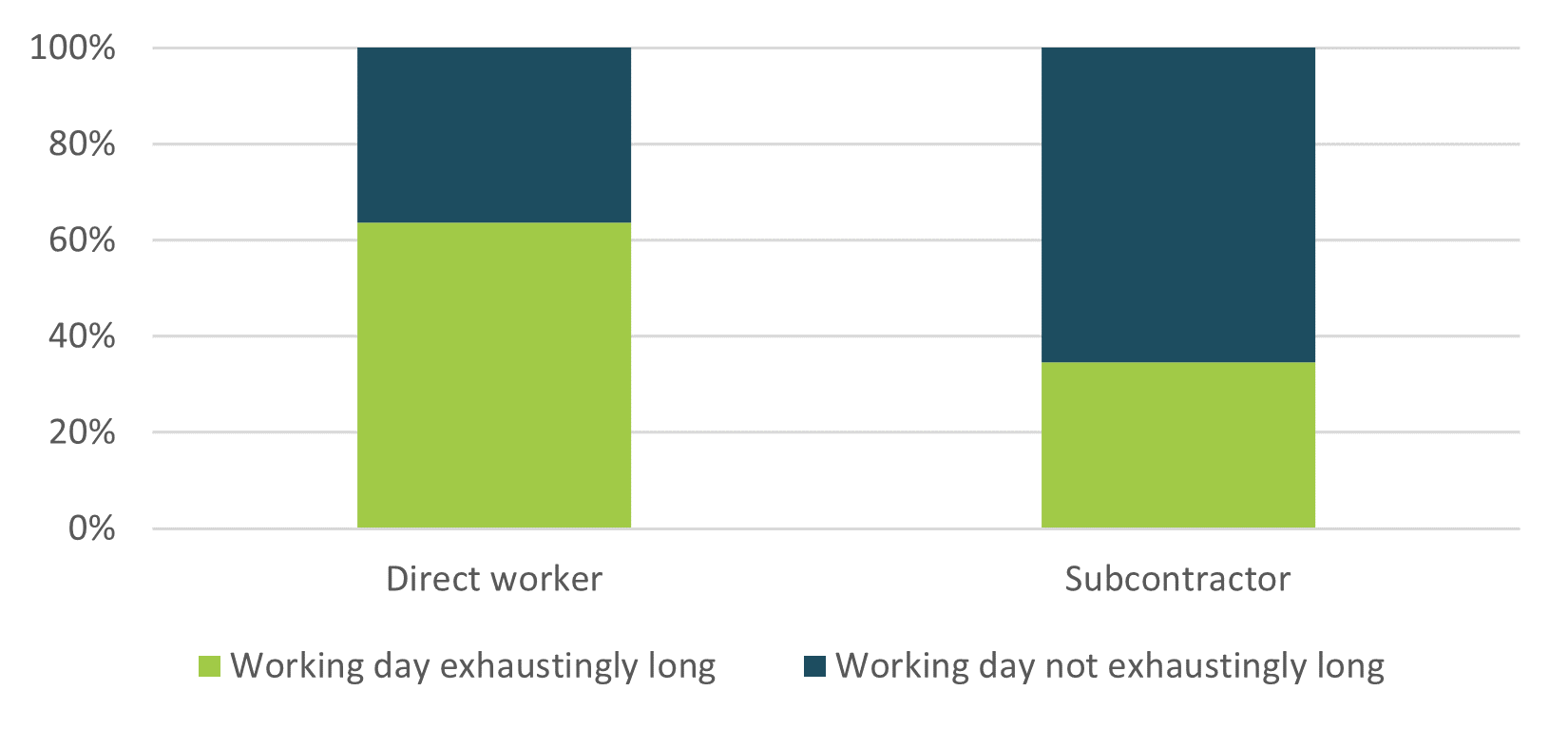
Accidents in the workplace
Most injuries in the mining sector are those caused by working with heavy machinery. Some of the daily work risks involve getting hit or run over, being crushed, falling from a high level (on a machine), and driving into unmarked/unguarded holes/pits in the ground.
The majority of the workers who participated in the monitoring survey had never been directly involved in such an accident. However, the consequences were severe for those who did get into accidents. Victims are usually very seriously injured, becoming disabled or dying.
The role of unions in prevention
Trade unions usually play an important role in the prevention of accidents in the workplace. They have been effective in taking action, raising awareness and providing information to employers about OSH risks.
Unions' awareness and information work and actions to get employers to pay attention to OSH risks have had a great effect.
Most of the workers interviewed are union members of a mining company where the digital survey is used conducted. These unions are vital to the protection of their labour rights, especially when it comes to ensuring they have a safe and healthy work environment.
Causes and frequency of mining accidents
CAUSES OF ACCIDENTS FREQUENCY
Poor labour conditions 35
(including lack of preventive maintenance)
Fatigue 30
Fall 22
Rock falls and collapse 20
Micro naps 9
Pressure and harassment from supervisors 9
Mismanagement and poor planning 9
Unspecified causes 8
Lack of concentration 7
Dealing with risks
One clear conclusion of the survey is that we need to make sure mining companies in Bolivia, Colombia, and Peru make information on safety and health more accessible to workers.
More than a third of the participants were found to be unaware of OSH protocols.
Work accidents caused by poor safety protocol on personal protective equipment (PPE )
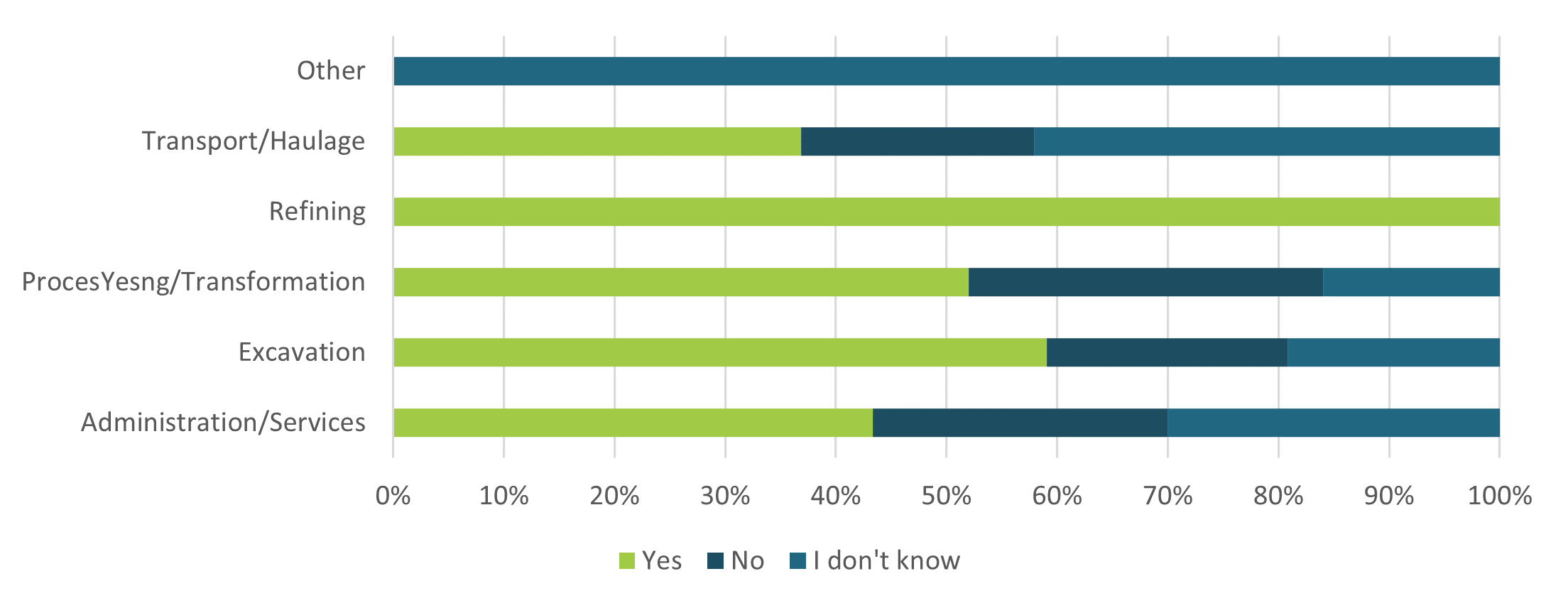
It is crucial that we do not neglect the health and safety situation of mine workers in Bolivia, Colombia, and Peru as we navigate this energy transition.
Just transition
"It is crucial that we do not neglect the health and safety situation of mine workers in Bolivia, Colombia, and Peru as we navigate this energy transition", emphasizes CNV Internationaal's Maurice van Beers: "It will only be a truly sustainable and fair transition when we shoulder our share of responsibility towards the people risking their health, and even their lives, to make our energy transition a reality. We must ensure their rights are not violated."

Research findings
The research has shed light on the types of risks which are affecting the miners the most
Learn more
Find more information on this subject on our thematic page on just transition in mining >
Publication date 28 04 2023
